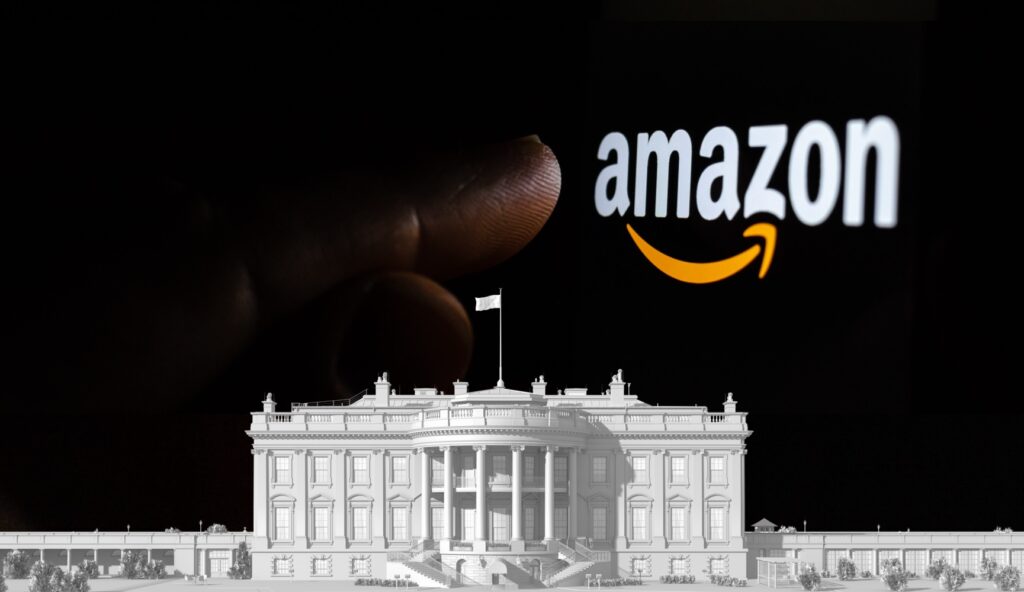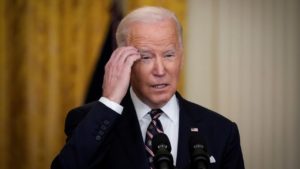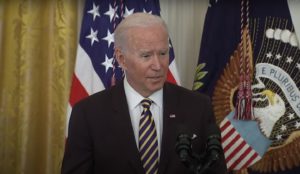Emails show Amazon censored books on COVID-19 after Biden admin pressure as censorship battle heats up in courts, Congress
Emails disclosed by the House Judiciary Committee (HJC) show Amazon censored books for the Biden administration, even as Amazon expressed concern about whether the practice would draw…

Emails disclosed by the House Judiciary Committee (HJC) show Amazon censored books for the Biden administration, even as Amazon expressed concern about whether the practice would draw attention.
In one of the emails released by HJC Chairman Jim Jordan, R-Ohio, an Amazon executive asks, “Is the [Biden] Admin asking us to remove books”?
The answer, it turns out, is, yes.
Although Amazon initially resisted the Biden censorship gambit, subsequently, Amazon complied with the request after a meeting at the White House, one HJC email indicates.
Amazon instituted measures that suppressed the promotion of books deemed to promote an anti-vaccination message or even warned of the potential dangers of vaccination, the email reveals.
Top White House officials scoured Amazon’s search engine for books that carried such messages the Biden team didn’t approve.
The administration’s top-COVID-19 censors wondered in emails to Amazon why the company didn’t place Centers for Disease Control disinformation warnings on such books.
Former White House official Andrew Slavitt, who was then the White House Senior Advisor for the COVID-19 response, was identified in emails complaining to Amazon executives.
Slavitt is under intense scrutiny for his role in censorship under Biden’s COVID-19 regime.
In November, the HJC issued a subpoena to Slavitt after he failed to appear voluntarily and offer testimony about his censorship activities with social media companies such as Facebook and Twitter.
According to a copy of the subpoena, the HJC was investigating new laws to limit the ability of the executive branch “to work with social media platforms and other companies to restrict the circulation of content and deplatform users.”
While much attention has been paid to censorship efforts on social media platforms that publish short form content, the Amazon case offers an example of expansion of censorship into commercial books and commerce in general.
“The national press will sound a five-alarm fire when a local school district removes a pornographic book from a kindergarten classroom, but is apparently fine with the federal government pressuring Amazon to disappear content that doesn’t fit the narrative,” Christopher F. Rufo, a senior fellow at the Manhattan Institute, wrote on X.
Critics like Rufo say the left has become near hysterical after some local schools and libraries decided to restrict books containing sexual content and mature themes to age-appropriate audiences.
Constitutional legal scholar Jonathan Turley said that instead of burning books “Democrats have embraced a censorship system that involves blacklisting, throttling, and now suppressing traffic.”
Chairman Jordan criticized Amazon, not just for its eventual submission to Biden White House pressure, but because the Amazon response focused only on whether censorship would be “too visible,” not whether it would be right or wrong.
“Initially, Amazon decided to hold off on ‘doing a manual intervention’ to censor books,” wrote Jordan on X. “Why? Not out of any commitment to free speech, but because doing so would be ‘too visible’ to the American public and likely to spur criticism from conservative media.”
In July 2023, attorneys general from Missouri and Louisiana sued the Biden administration for First Amendment violations related to the efforts to deplatform content and content providers.
The lawsuit claims that Biden censorship “arguably involves the most massive attack against free speech in United States’ history.”
A lower court agreed.
The 5th U.S. Circuit Court of Appeals in New Orleans in September prohibited the White House, the Surgeon General’s Office, the FBI, and the Centers for Disease Control and Prevention from having practically any contact with social media companies, reported the Missouri Independent.
But that order has been temporarily stayed by the U.S. Supreme Court pending a review of the case which is expected before the end of the court’s term in June.


